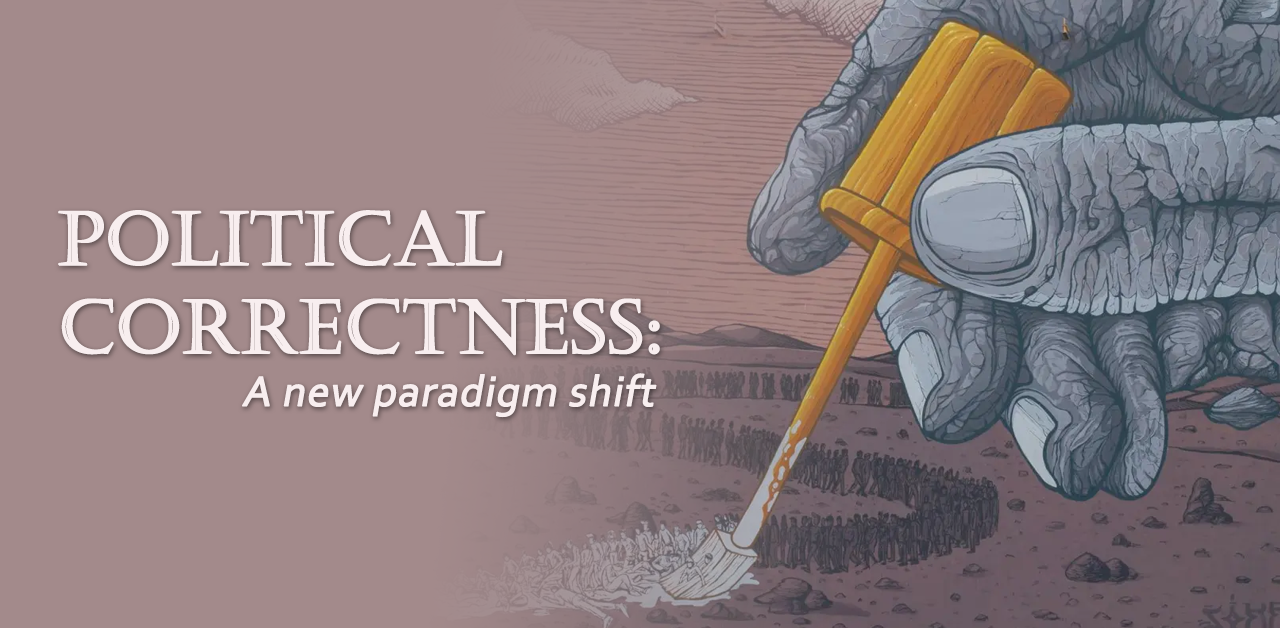 15 Apr 2023
15 Apr 2023
Political correctness is a term that has gained widespread usage in recent years, particularly in discussions around language and social norms. It is a term that has been both praised and criticized, with some seeing it as a way to empower marginalized groups and others viewing it as a form of censorship that seeks to suppress free speech. In this article, we will explore the concept of political correctness and its impact on society, particularly in terms of whether it is a window of opportunity for marginalized groups or an attempt to introduce new psychological norms despite any social or historical discrepancies.
What is Political Correctness?
The term political correctness originated in the 1960s and was initially used to describe efforts by the left to promote greater sensitivity to issues of race, gender, and other forms of identity. It was seen as a way to eliminate racism and discrimination in society and to create a harmonious, more inclusive, equitable, and peaceful environment.
Over time, the word has taken on many meanings and has been used in a variety of contexts. While some see political correctness as a way to promote social justice and create equality, others see it as a form of censorship that suppresses freedom of expression and relevant intellectual inquiry.
A key element of political correctness is the use of inclusive language. This means using language that does not hurt or offend marginalized groups such as people of color, women, LGBTQ+ communities, and people with disabilities. Examples of inclusive language include using gender-specific language, avoiding discrimination or stereotypes, and using person-first language when referring to people with disabilities.
In addition to language, political correctness includes changes in culture and behavior. For example, it may involve altering interpersonal relationships, such as not making inappropriate jokes or comments that could be perceived as offensive.
Is Political Correctness a Window of Opportunity for Marginalized Groups?
One argument in favor of political correctness is that it creates a window of opportunity for marginalized groups by promoting inclusive language and behaviors, thus aiming to create a just society where all are treated with respect and dignity.
For example, using gender-specific or gender-neutral language can facilitate participation for non-binary people who do not identify as male or female. This can create a warmer environment for non-binary individuals who may feel marginalized or excluded in a predominantly binary society.
Likewise, using human-centered language when referring to people with disabilities can help increase awareness and understanding of disability issues. By using language that is more about people than about disability, we can affirm the concepts of respect and inclusion for people with disabilities.
Political correctness can help prevent racism and discrimination in society as well. It helps create a more just and equal society through awareness and understanding of issues related to race, gender, and other identities and hence can help to create a more just and equitable society.
The new face of global society
Although there are many arguments in favor of political correctness, there are also criticisms of the concept. One criticism is that political correctness is an attempt to present new psychological models in the face of many social and historical benchmarks.
Critics say that political correctness tries to impose on people a particular worldview that is based on a narrow set of ideological beliefs. By promoting certain forms of language and behavior, political correctness seeks to create a society that conforms to these ideological beliefs, regardless of whether they are supported by social or historical evidence.
Critics argue that the use of gender-neutral language is not supported by scientific evidence and is instead based on a particular ideological viewpoint. According to them, this viewpoint seeks to impose a particular understanding of gender on society which does not reflect the biological differences between men and women.
Similarly, other critics believe that political correctness can stifle free speech and intellectual inquiry. They claim that the emphasis on inclusive language and behaviors can create a climate of political correctness in which certain topics or ideas are considered taboo or off-limits. Consequently, this might create a backlash among those who feel that their views and beliefs are being suppressed, which can lead to a polarization of society and a breakdown of civil discourse.
Conclusion
Political correctness is a complex and multifaceted concept that has both positive and negative aspects. While it can promote inclusivity and combat discrimination and bias, it can also be seen as an attempt to impose a particular worldview on society and restrain free speech.
Ultimately, the impact of political correctness on society will depend on how it is implemented and how it is perceived by different groups. It is important to strike a balance between promoting inclusivity and allowing for open dialogue and intellectual inquiry. By doing so, we can create a society that is both just and free.
